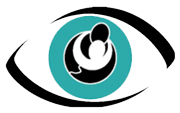Affects And Treatment
A very small proportion of affected children recover spontaneously, that is, without medical intervention.
However, the majority require medication. The most useful group of drugs which have been found to be effective are steroids and ACTH, a hormone which stimulates the adrenal glands to produce steroid. Using this medication, children improve comparatively quickly and abnormal movements are usually abolished within a month of starting treatment. The youngsters become happier and abnormal movements are abolished. Unfortunately, many children are left with some degree of learning and/or behavioural disability.
Is there a treatment?
Clinicians are now treating DES with stronger immune treatment and a recent treatment consensus has been published (add reference or link).
Although the evidence is mounting now that early and more intensive treatment result in better neurological recovery, we are still unclear if this improves the behavioural and cognitive outcome. Sometimes in children who have responded favourably to immune treatment, relapses are triggered by trivial viral infections.
Current Research & Treatment
Identifying treatment that will promote a full recovery is key. Research is now concentrating on exploring the mechanism of the disease, the identification of the immune process, and trial of alternative drugs which regulate immune disorders.
For details of the support group in the US, please visit: omslifefoundation.org.
